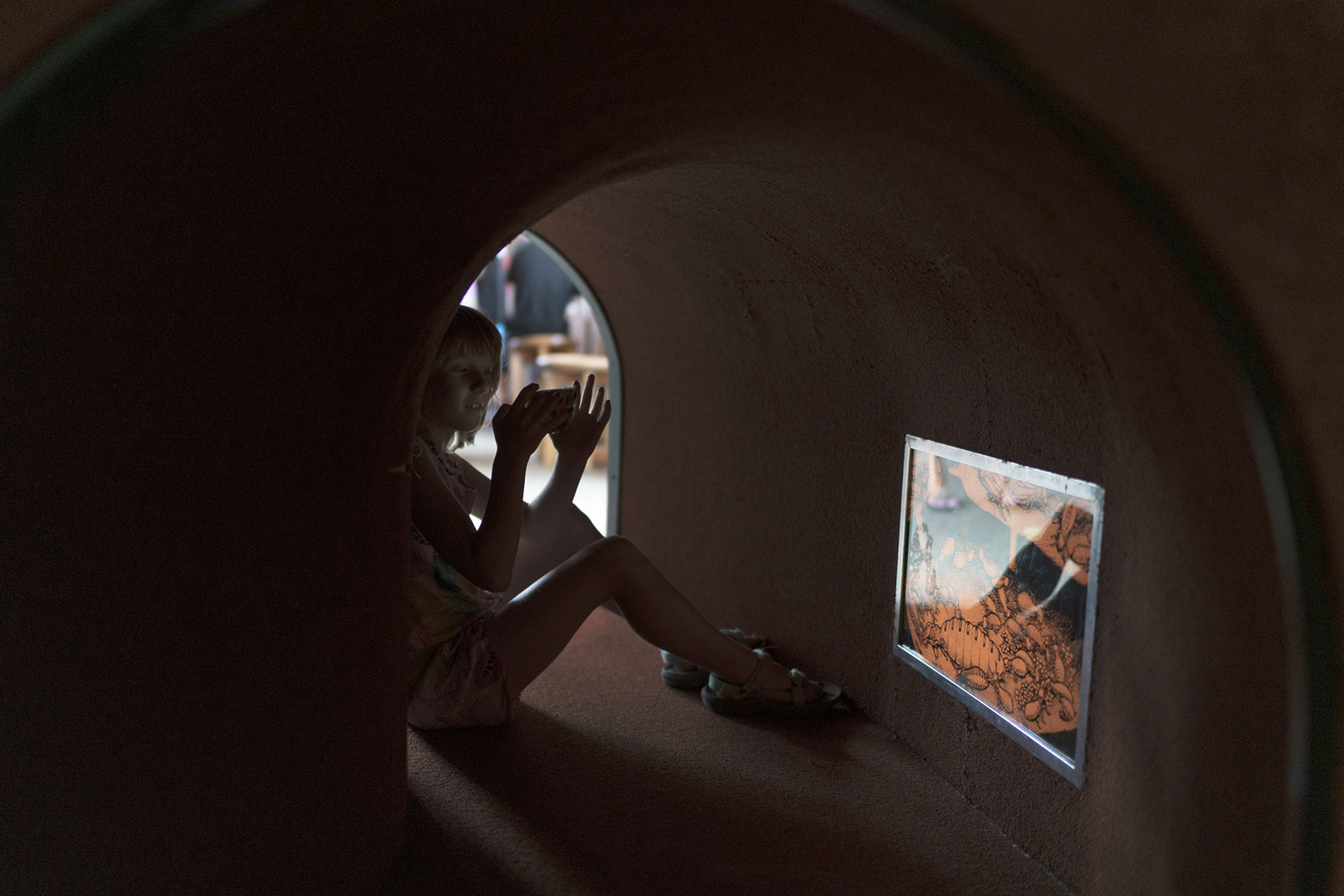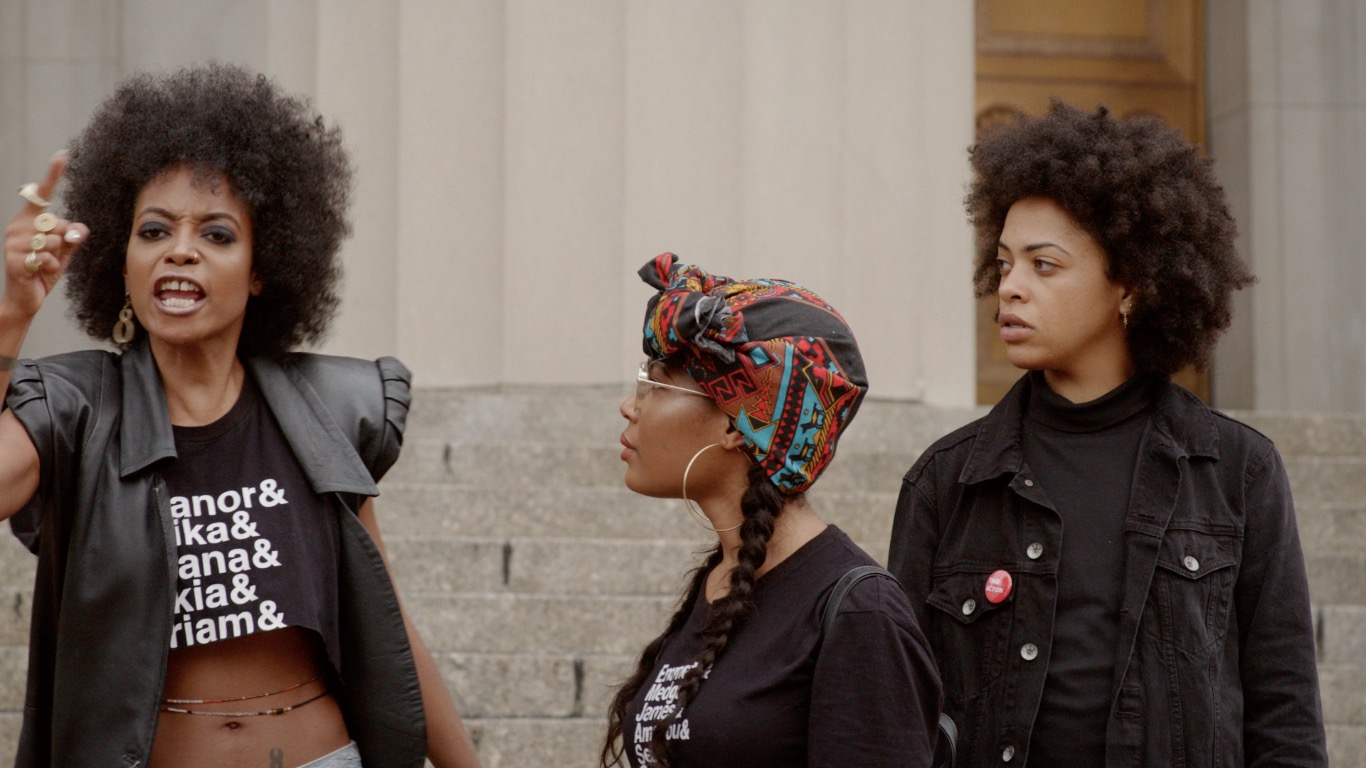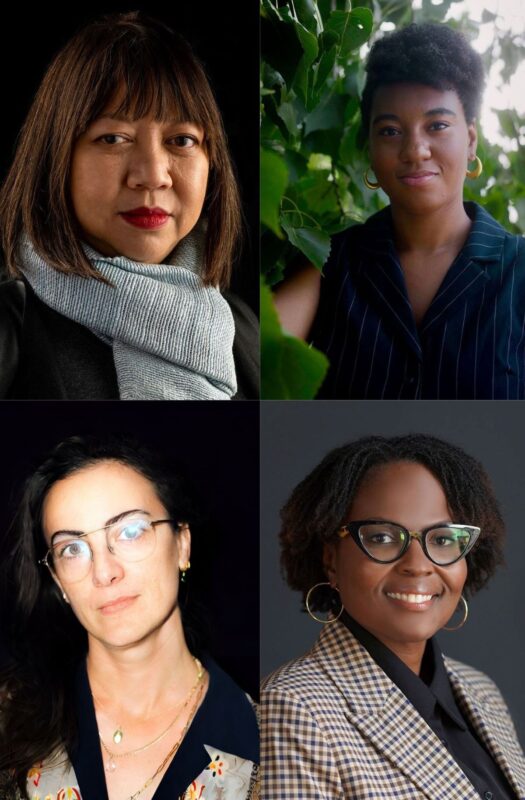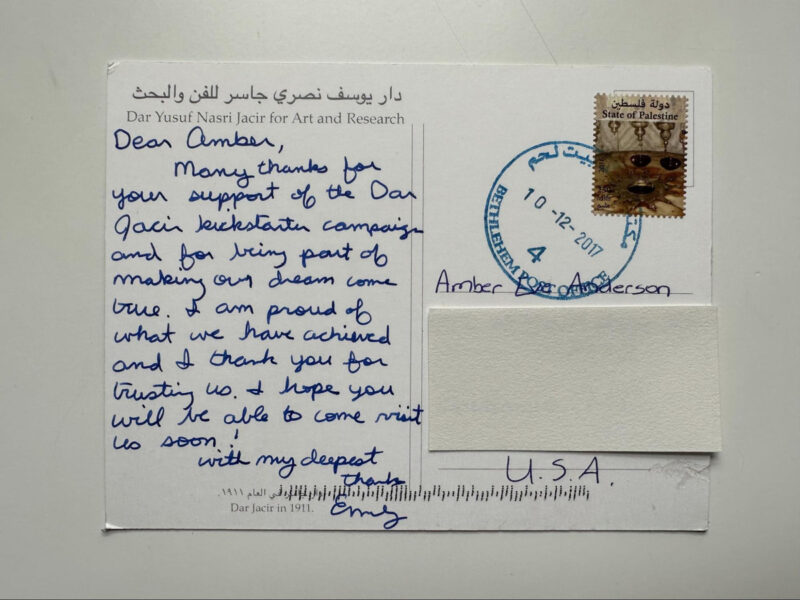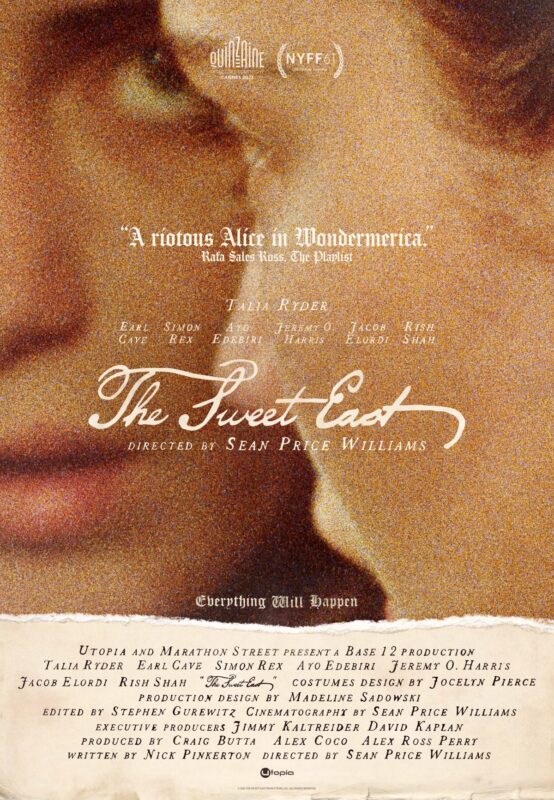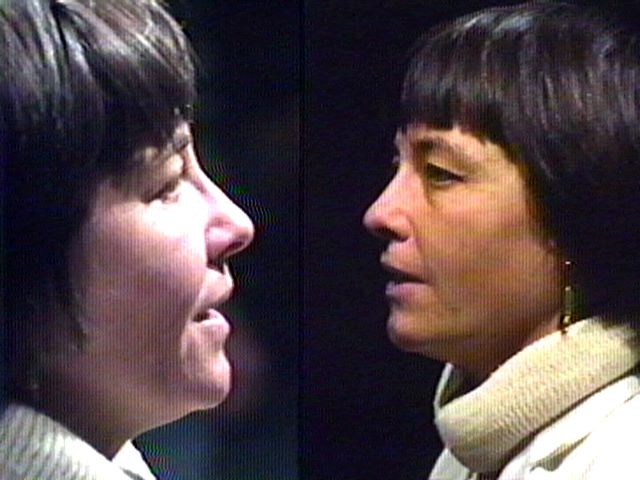What happens to a city that can’t even imagine itself differently in the medium of film?
Rape, food deserts, more rape, and gun violence are the central themes in the Balti-Shorts program. Curated by the Maryland Film Festival in an attempt to “showcase the incredible diversity of talented artist that choose to tell Baltimore’s story and call our fair city home” (taken from the MdFF program) this block lacks nuance and imagination. “There’s enough narratives about how fucked-up Baltimore is, but there’s not enough about how great we are, how dope we are,” says Erricka Bridgeford, the protagonist of Sage. Ironically enough, those are my exact thoughts on the Balti-Shorts program.
 Still from Sage
Still from Sage
Sage is a powerful film that offers the only real glimpse of hope for the city in the entire Balti-Shorts program. Directed by Gabe Dinsmoor, this 20-minute documentary follows the Baltimore Ceasefire movement, a beautifully earnest, homegrown attempt to end gun violence in Baltimore City. This short gives background into how this movement started and shows how it’s became a source of respite from the violence for all of its participants. We see Bridgeford sharing her soul with her city and utilizing the healing energy of public grief and community mediation.
Gun Show is a missed opportunity. Directed by Richard Chisolm, this documentary follows local sculptor David Hess as he tours his extensive collection of gun sculptures made out of any and everything, including but not limited to baking pans, hair dryers, and crutches. David goes to guns shows in the south, busy city centers of New York, and even to West Baltimore where young black youth pour out their hearts around their own experiences of gun violence. Sandy Hook is mentioned a few times throughout the documentary, but interestingly enough Hess doesn’t go there. Given how often public school shooters are young white men who go to predominantly white schools, why not visit a school with white children and potentially re-traumatize them? Are black youth the only demographic with an intimate knowledge of gun violence? This film could have been really great had it narrowed in on white men’s relationships to guns. A white man makes these sculptures of guns and takes them all over the states and other white men practically drool over them but yet, only black youth from the West side are shown intimately rehashing their encounters with gun violence? Interesting.
BodyMore is strangely one of the lighter films in the lineup. It follows activist Carrie Cook (played by Trae Harris) as she returns home to Baltimore to protest the killing of yet another unarmed black man. A friendly reunion that feels all too familiar to anyone who has ever tried to maintain long-term friendship with heterosexual men takes a horrifying turn. Directed by Darren Mallet, this film features the music of local musicians like Abdu Ali and Joy Postell and stars Baltimore’s very own Trae Harris. The film manages to keep an upbeat tone despite the subject matter and there is a clever use of text messaging to convey the protagonist’s inner turmoil. The climax would have been a bit more interesting if Carrie wasn’t suddenly turned into a victim, which ultimately complicates her life’s work of protecting black men through her activism.
Deserted, directed by Emily Stubb, is a decent documentary on a tough subject matter: food deserts in Baltimore City. It follows a West Baltimore resident who is taking matters into his own hands by running his own community garden and attempting to open his own farm-to-table restaurant. We see the opening of the Salvation Army’s first supermarket on the East side and get an adorable commentary and education from school children on food. It’s a straightforward documentary that shows the reality of food deserts as well as context for how they came to exist. Visually, it’s a bit harsh; more consideration could be put into the lighting and the lack of a soundtrack makes it feel long, even unfinished.
Finding Phoebe is perhaps the toughest one to watch. This heartbreaking coming-of-age story directed by Sadé Clacken Joseph tells the story of Phoebe, a teenage black girl whose mother is more concerned with the men in her life than her own daughter. Phoebe’s only glimpse of sweetness is her childhood crush turned current boyfriend, a studious Jamaican boy with a no-nonsense mother. Of course, Phoebe has a step-father and of course he’s a creep and of course your worst fears for Phoebe will eventually be confirmed. The short ends with Phoebe setting on the steps of a corner store in solitude waiting for her boyfriend who may never come as she contemplates the violence she just experienced.
 Still from Finding Phoebe
Still from Finding Phoebe
As standalone short films, all of these stories are solid—stirring, even. But put together, they had a nauseating and depressing impact on me. I found the curation of this program to be lazy at best, a study in Black trauma porn at worst. Most of these shorts were either made by black filmmakers or spoke to the unique experience of black life in Baltimore and perhaps this is what was meant when the programmers claimed “diversity” in this lineup, but for me there is nothing diverse about this sequence at all. In the 105 minutes of this program, there will be two black women raped and more talks of guns and poverty than I can stomach.
Naming this program Balti-Shorts is misleading; Social Justice Shorts would have made more sense. And even that would give pause as we’ve passed the point in a society where creating content centered around violence is enough. There is enough “awareness,” there is enough “dialogue.” What are we actually going to do about the rape and the food deserts and gun violence? We can no longer afford to present problems without solutions, and that’s why I found the curation of this series to be lazy. There are so many other diverse stories in this town—hopefully next year we’ll actually get to see some.
The Balti-Shorts program of the Maryland Film Festival screens Thursday, May 9, at 4 p.m. and Saturday, May 11 at 4:30 p.m. There will be a Q&A with the filmmakers following the screenings. For more information on Balti-Shorts and other festival programming, visit the MdFF’s website.
Images courtesy of the Maryland Film Festival.
